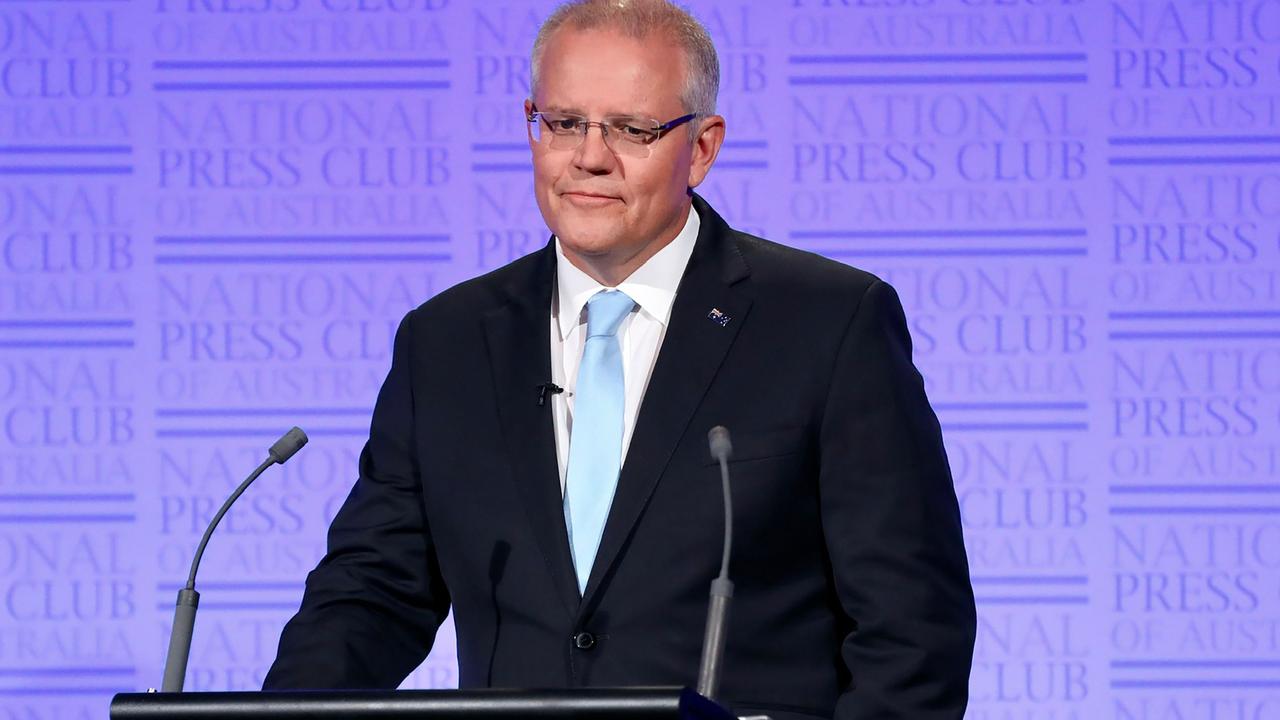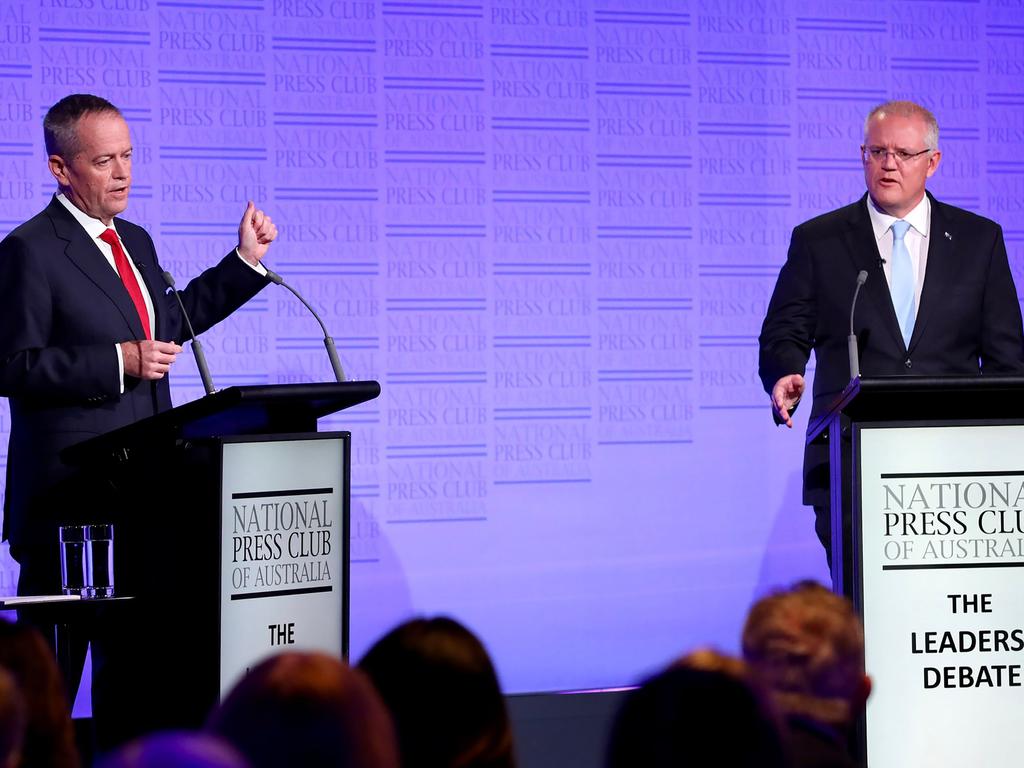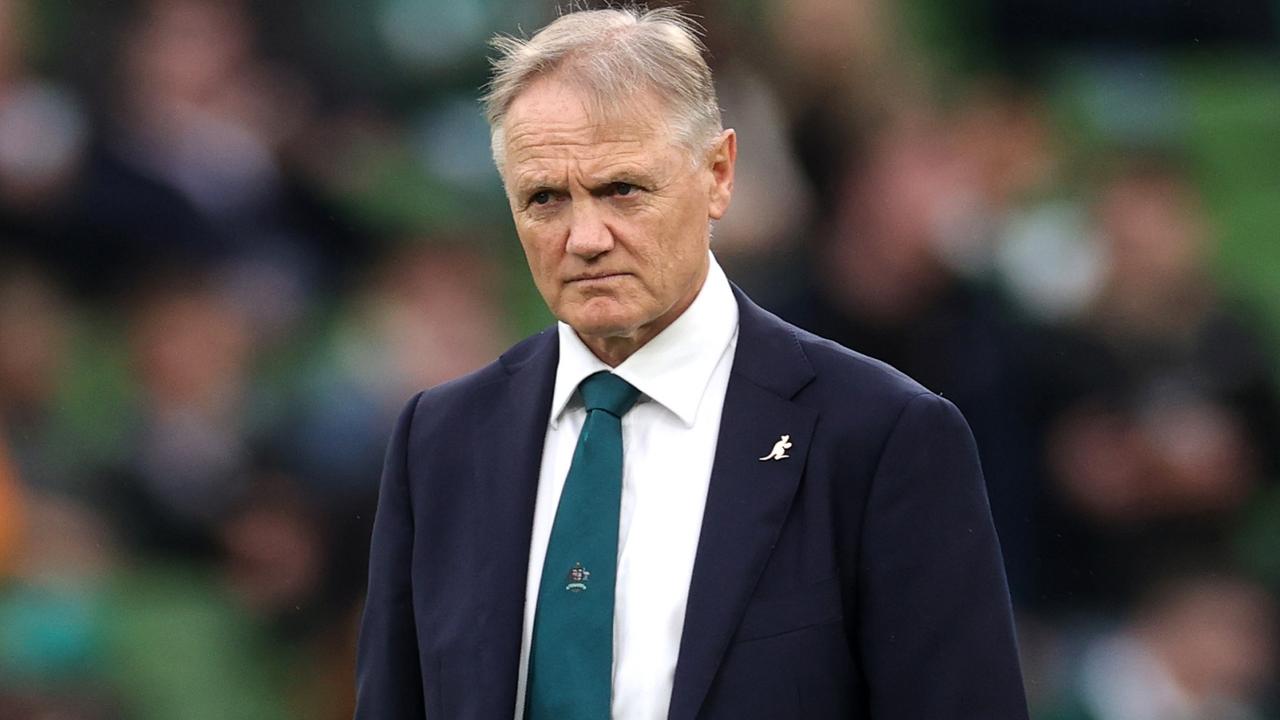Scott Morrison and Bill Shorten weigh in on Israel Folau scandal
Israel Folau’s controversy continues to grip the nation and last night, some very high profile Australians weighed into the debate.

The Israel Folau saga has crossed over from sport into politics as Prime Minster Scott Morrison and Opposition leader Bill Shorten weighed in on the scandal during last night’s leadership debate.
As the Liberal and Labor leaders campaign ahead of the election on May 18, talk turned to their thoughts on Folau after the rugby star was found guilty of a “high level” breach during a code of conduct hearing for his Instagram post that said “hell awaits” gay people.
Folau is awaiting sanctioning after an independent panel found him guilty on Tuesday. Should the panel choose the most severe level of punishment in its power and terminate his $4 million, four-year contract with Rugby Australia, it’s expected the dual international will appeal.
The best the 73-Test veteran can hope for is leniency from the panel and a suspension and/or fine.
During the leadership debate, ABC host and moderator Sabra Lane asked: “Turning to religious freedom. Wallabies star Israel Folau has been found guilty of a high level breach of the Rugby Australia rules over his social media posts. Should people be allowed to express their fundamental beliefs or is free speech being threatened in this country?”
RELATED: Folau offered surprise lifeline
RELATED: ‘Bulls**t’ Folau myth busted

The Prime Minister was the first to answer the curly question and said freedom of speech and freedom of religion must be respected, but also exercised responsibly.
“Free speech is one of our fundamental freedoms, so is religious freedom. I feel this very strongly. I mentioned it in my maiden speech to the parliament. If you’re not free to believe, what are you free to do in this country?” he said.
“The reason so many Australians who have come from other countries, escaping religious persecution in other places — I spoke about the Lebanese Maronite community and they have
come here to escape that and they want to be sure in the future their religious freedoms are protected.
“Freedom of speech is important, but we have to exercise it responsibly and exercise it in a society such as ours with civility and due care and consideration to others.”
Mr Morrison said he admires people with strong faith, while respecting those who aren’t religious, but also acknowledged the difficult situation that arises when beliefs collide with terms of employment laid out in a contract.
“That is why I seek to do as a public figure — and as public figures we have, I think, a higher and more special responsibility in relation to what happens in matters of contracts law and employment law — we’re all subjects to those if we enter into those contracts,” he said.
“But I admire people of religious conviction. I admire people who draw strength from their faith. I am one of those people. I admire people who have no faith. That’s their choice. That’s the great thing about Australia. You’re free to believe.
“I want to ensure Australians can always be free to believe but feel they can be free to believe.”
That boiled down to an argument that Folau’s predicament is more about him violating the terms of his employment than freedom of speech and religion.

Mr Shorten was in broad agreement and said he was “uneasy” about Folau’s job being threatened.
“You went to the specific issue of Israel Folau. Mr Morrison is right there, it’s a contractual negotiation at one level but I’m uneasy about where that debate’s gone,” he said.
“On one hand, I think Israel Folau is entitled to his views. And he shouldn’t suffer an employment penalty for it. So I’m uneasy about that part of it.
“But I also think that we’ve got to be mindful about the other side of the equation. People putting out on social media that if you’re gay you’re going to go to hell — I get that’s what he genuinely believes. When you’re a public figure, that has negative impact, a hurtful impact on other people.”
Mr Shorten said he doesn’t agree with Folau that gay people will go to hell but reinforced the dangerous territory you wade into if you punish someone for their beliefs.
“Let’s hope that common sense prevails and they find a happy medium. I don’t think it’s a simple issue,” Mr Shorten said. “I don’t think it’s a clear-cut issue when the edges bump up against each other.
“I don’t think if you’re gay you’re going to go to hell. I don’t know if hell exists actually. But I don’t think if it does that being gay is what sends you there. So I am uneasy.
“On the Folau matter I’m also uneasy if he has genuinely held views and he could suffer some sort of really significant penalty.”
With AAP



